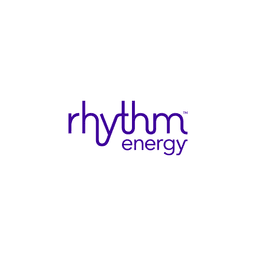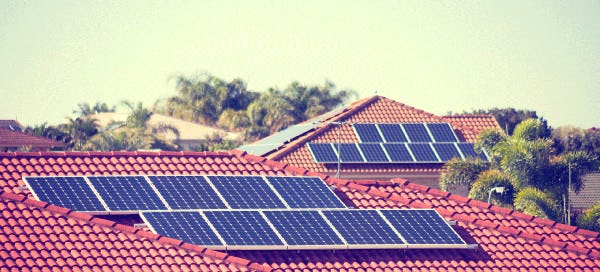As you've moved through the beginning phases of your solar journey, you've been learning tons of facts about solar panels. You've likely learned that there is a wide range of different styles, brands, and features you can choose from. It can be challenging to understand how to find the best solar panels for your home and the right person to install them.
But you've come to the right place. This article will help make the process smoother and a little less stressful. You'll learn everything you need to know about choosing and installing solar panels for your home. Whether you're near the beginning of the process or ready to get your solar panels installed, there's something in this article for you.
Understanding How Solar Energy Systems Work
Solar panels are made of photovoltaic (PV) cells. As the sun shines onto the solar panels, its energy is absorbed by the PV cells. The energy absorbed creates an electrical charge that moves according to the electrical field in the cell. Parts of the solar panel convert power from direct current (DC) to alternating current (AC) for use in your home.
Some parts of the solar panel array may store the energy for use after there is no more direct sunlight for the day.
Benefits of Residential Solar Panels
Installing solar panels on your rooftop has become increasingly popular. But for what reason? Well, there are many reasons why homeowners are choosing solar. Some of the reasons include:
Saves money
Minimizes your carbon footprint
Increases your home's value
Sunlight is an abundant energy source
When you rely on your purchased solar panels, you become independent from your local electricity grid. Going solar can prevent you from experiencing a power outage when the rest of your community is in the dark.
Disadvantages of Residential Solar Panels
The benefits are plentiful with solar energy, but that doesn't mean there aren't any downsides. Solar energy is powered by the sun. Since sunshine is variable, so is the energy produced. Solar panels cannot absorb energy at night, and the absorbed energy will also vary with the season and the time of day. This can make your available electricity inconsistent and leave you without power if you are disconnected from the grid.
Though the amounts are small, toxic chemicals like arsenic are generated during the production of solar panels. These impurities do impact the environment. However, these pollutants can be disposed of responsibly.
Decide If Your Home Is Prepared for Solar
Some homes are better equipped to handle solar installation than others. But just about any home can go through renovations to guarantee it is prepared for solar panels.
Before committing to solar panels, check the condition of your roof and the support system. Solar panels aren't heavy, but the added pressure on a weakened structure could create a disaster. Consider how old your roof is, and if it needs replacing soon, think about replacing it before installing solar panels.
There is an alternative to rooftop solar panels. You could have your solar energy system installed on the ground. It's not always the most visually pleasing option, and it can use a lot of your yard space. But it's a functional alternative if the roof isn't your best option.
The Best Time for Investing in Solar Panels
Many solar companies will say that there's no better time than the present to commit to going solar. However, rushing into a decision could backfire. Some solar incentives make purchasing more appealing, but ensure you've done your research.
Where to Buy Solar Panels
Yes, a lot of research must still be done before purchasing your solar energy system. It may require you to call around to several companies and get a quote, and prices may vary between companies. The final price will come down to the following factors:
Type of solar panels
Number of panels required
Manufacturer
Choice of inverters
Choice of battery backup
The solar company you hire will help you with the information above and additional products you may be interested in. Remember that your solar installer should tailor their recommendations based on your individual needs.
Finding the Right Solar Installation Company
One of the most crucial steps in your solar journey is finding the right solar installation company. They must be trustworthy and reliable so that the process will be smooth. Look for the following things during your search for a solar company:
Current and updated reviews on their website
Knowledge about tax incentives
Their communication process
Whether they are licensed and insured
Quality of their warranties and maintenance plans
After reviewing the items on this list, you should know which solar installation company is your best match. If they are helpful and willing to answer your questions, the company will likely communicate well and get the job done right.
Choosing the Type of Solar Panels for Your Texas Home
Although installing solar panels can be a DIY project, hiring a professional is always the best decision. They will work with you to choose the design of the best solar energy system that will meet the demands of your home.
This will include choosing the type of solar panels to provide you with power. However, making your selection shouldn't be a snap decision. Here are the top factors you should consider when choosing the best solar panel for your home.
Price
Purchasing solar panels is a significant investment, but pricing shouldn't be the only factor you consider. The most expensive solar panel might not provide you with the best value, while the cheapest may not necessarily be the worst. Rather than focusing on the dollar amount, focus on the system that will work efficiently and for many years.
Once you've decided on a panel type, you can ask about tax incentives and rebates related to that manufacturer. Many programs, including solar loans and tax rebates, can help make your investment more affordable.
Types of Panels
Solar panels are like most modern materials. They are available in various shapes and sizes, each with its own pros and cons. The two primary types of solar panels are monocrystalline and polycrystalline.
Monocrystalline panels are highly efficient but have the price tag to go with them. On the other hand, polycrystalline panels are more affordable but are less efficient. The best solar panel for your home depends on your budget and the needs of your home.
Quality
Solar panel quality is one of the top factors to consider. But how can you identify a quality product? You can often tell how well a manufacturer backs their product by looking at their warranty. A 25-year warranty is a good sign that the panels are high-quality and will provide optimal solar output. However, the lack of adequate guarantees could indicate that the company doesn't want to be held responsible for any issues that occur in the future.
These panels will often be sold at a lower price, which may seem appealing. But it could cost you more money if the panels are of poor quality.
Maintenance
Solar panels are considered low maintenance. However, this doesn't mean there is no maintenance involved. Caring for your solar panel system in the right way will maximize its lifespan and ensure maximum efficiency.
Solar panel maintenance typically includes regularly cleaning them and replacing damaged parts. You'll also need to monitor performance indicators like shade or snow and remedy the situation when necessary.
Efficiency
Several factors influence a solar panel system's overall efficiency. The amount of direct sunlight the panel receives affects the amount of electricity produced.
You'll also consider the size of the panels needed at your home. Do you need small or large solar panels? Are you willing to pay higher upfront costs to achieve maximum efficiency?
These two factors must be balanced to know you'll have the best system installed at your home. After all, a solar panel system that is too big for your home creates unnecessary expenses and frustration.
Durability
Durability is a crucial factor when installing solar panels. They'll last much longer than less durable products, so you won't have to pay for replacements as often. If your area is susceptible to harsh weather conditions, durability will ensure your solar panel continues to work efficiently. It will also be protected from potential damage that would stop it from working.
Purchasing more durable solar panels helps reduce your carbon footprint even more! Since your panels will last longer, you won't have to purchase additional materials as frequently to replace broken or damaged solar panels.
Size
We've touched on size a little, but it's worth mentioning again. Pay attention to the size of the panels you invest in. Larger panels produce more energy. This is advantageous if your home consumes a lot of energy. What's more, oversized panels tend to be more durable and easier to install.
But with more electricity generation, you may see more expensive costs. Ultimately, it's up to you and what fits your budget, but it's essential to balance size and price when you decide on the perfect solar panels for your home.
Aesthetics
Some people are drawn to the specific style of one brand of solar panels. Others are more concerned with efficiency. Generally, most solar panels with a thin film have a uniform look, making them the preferred solar panel for some families. However, they have lower efficiency and require additional space for more solar panels.
Temperature Tolerance
Temperature tolerance describes how well a solar panel operates even when exposed to high heat levels. Look for products with higher levels of thermotolerace because they are better suited to continue working efficiently in the warm Texas weather.
This allows you to maximize the solar output of your system and have more significant savings throughout the lifespan of your system.
Aside from the solar system cost, these are the most significant points you should consider when moving through your solar journey. Carefully research how each brand of solar panels performs in the real world. Don't let any questions go unanswered to feel confident in your solar panel choice.
Increase Your Savings with Our Rooftop Solar Buyback Plan
When it comes to everything solar in Texas, you have choices. You also choose your energy provider, giving you more opportunities to save, especially when choosing Rhythm.
At Rhythm, we want to help our customers get a higher return on their solar investment. That's why we offer our solar buyback plan. After your solar installation, participating in this valuable plan will pay you for the additional solar electricity you don't need!
Every month, you'll get a credit on your electricity bill based on how much energy you've sent back to the grid. We believe in transparency, too. So you'll never have to worry about hidden fees.
If you're ready to see your savings grow, ask how to become a customer. We have a friendly customer service representative available seven days a week, ready to answer your questions. Contact us today to learn more about our renewable energy plans.




